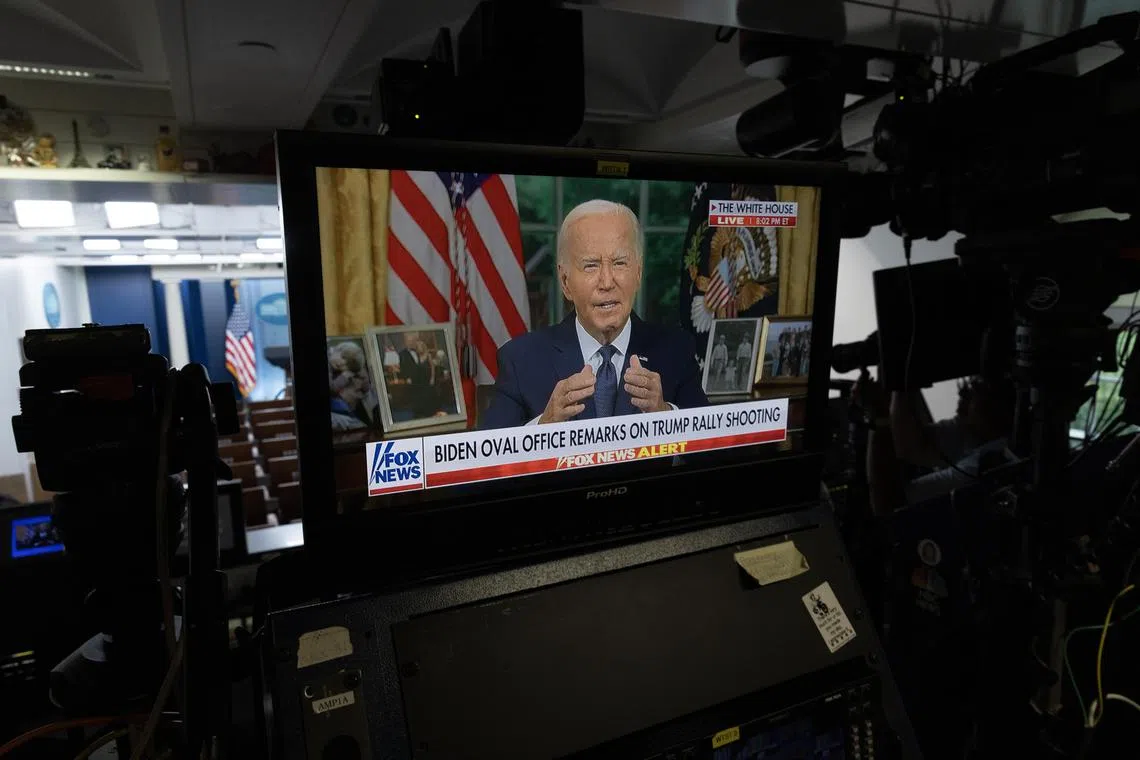Defiant Biden or pugnacious Trump: the US Treasury market wants neither at the White House
Owners of Treasury bonds are adjusting to the likelihood of Donald Trump getting another four-year term and mismanaging American finances
HAVING survived an attempted assassination over the weekend in typically flamboyant fashion, Donald Trump is likely to extend the already hefty lead he picked up in the wake of US President Joe Biden’s now infamous debate flop.
Nearly three weeks have passed since that televised CNN debate, and the calls continue to grow for the 81-year-old Biden to call it quits while there is still a bit of time left until the November polls, and let someone else fight Trump instead.
A growing number of high-profile US senators and congressmen are putting pressure on Biden to do so, and even the likes of influential Hollywood actor George Clooney has joined the chorus.
A defiant Biden has insisted that the only way he would bow to such pressure is if someone convinces him that there is no way that he can defeat Trump. If Biden follows the Treasury market, however, he may find it extremely persuasive on this point.
Few people who watched the debate will soon forget the shocking moment when Biden repeatedly lost his train of thought.
This was a good 30 seconds of a befuddled man drawing a complete blank, followed by an incoherent babble that trailed off with a bizarre claim that Biden had “finally beat Medicare”.
Navigate Asia in
a new global order
Get the insights delivered to your inbox.
“It was incredibly bad,” said Elizabeth Skewes, a professor of media studies at the University of Colorado. “It confirmed people’s worst fears.”
Bond market worries
In the immediate aftermath of that debate, the markets were noticeably quiet. That, in itself, may have been the strongest indication that the smart money believed Biden would eventually bow to the inevitable.
It was when Biden later emerged with a defiant message, claiming that his debate performance was just him having a bad night, that the bond market cratered.
Strategists said owners of Treasury bonds were adjusting to the likelihood that the 78-year-old Trump – who sounded as vindictive, unapologetic and unfettered by common decency as ever – would get another term in the White House and mismanage American finances.
After all, the populist Trump embraces the economic vices of both the Republican and Democratic parties – a uniquely reckless combination of lower tax cuts and higher entitlement spending.
The “bond vigilantes” sometimes move Treasury markets to nudge US Federal Reserve policy one way or another. This time, however, they were calling for Biden’s head.
Outside the market, the calls were even louder. During CNN’s post-mortem of the debate, several Democratic strategists, including (former president Barack Obama’s chief adviser) David Axelrod, openly called Biden’s ability to win the election and serve another four years into question.
The New York Times editorial board has twice called for Biden to make way for another nominee. There were also extensive media reports about unnamed Democratic donors who were suddenly agitating against a Biden nomination.
The recent polls were even more blunt. In the latest survey by pollster FiveThirtyEight, Biden’s disapproval rating registered at a worrying 57 per cent level.
Yet Biden continued to dig his heels in. He has tried to strike a more pugnacious tone at recent political rallies and in some TV interviews.

The final nail in Biden’s presidential coffin may have come last week when Vermont Senator Peter Welch, the first defector in the upper chamber, appealed to him to reconsider “for the good of the country”.
“As a voter, I don’t care about the schedule he’s keeping. We don’t really care that he has some really good days, and can be forceful. What I fear is the next moment that looks like the debate. Does that happen at a Nato conference? Does that happen at some other critical moment, because, let’s face it, the presidency is filled with critical moments,” said Welch.
Even as many came to bury Biden, others have taken pains to praise him. His success in passing major infrastructure legislation and exiting Afghanistan will ring out in the history books, no matter what happens in November.
“I don’t think anyone is saying that Biden hasn’t done good work,” said Skewes. “The question is, can he continue to do so, and the CNN debate raises that as a serious question.”
An argument built around polling data showing alternative candidates matching off better against Trump might somehow persuade Biden, she added. The argument that Biden is too infirm to govern is less welcome.
The Treasury market has settled down, largely because the hints of a coming interest rate cut have become stronger from Fed chairman Jerome Powell.
Political observers say that another Trump presidency – in the wake of the January 2021 Capitol insurrection attempt and with fewer “guardrails” in Congress – could materially damage the US democratic system.
Some Wall Street observers are more sceptical about the likelihood of Trump driving the US Treasury into the ground.
“The US economy is rather large,” said Brent Schutte, chief investment officer at money manager Northwestern Mutual Wealth Management. “Most companies think more than four years ahead.”
In Schutte’s view, neither Trump nor Biden will be able to alter the course of the economic cycle, which is grinding towards some sort of recession regardless of the political noise.
Nonetheless, the message from the Treasury market is clear: having a US president whose last name is neither Biden nor Trump will go some way to alleviate concerns about US finances. It’s wishful thinking at this stage, of course, but it’s a message that will continue to be made in the coming days and weeks as the election campaign heads into the final stretch.
Decoding Asia newsletter: your guide to navigating Asia in a new global order. Sign up here to get Decoding Asia newsletter. Delivered to your inbox. Free.
Copyright SPH Media. All rights reserved.




